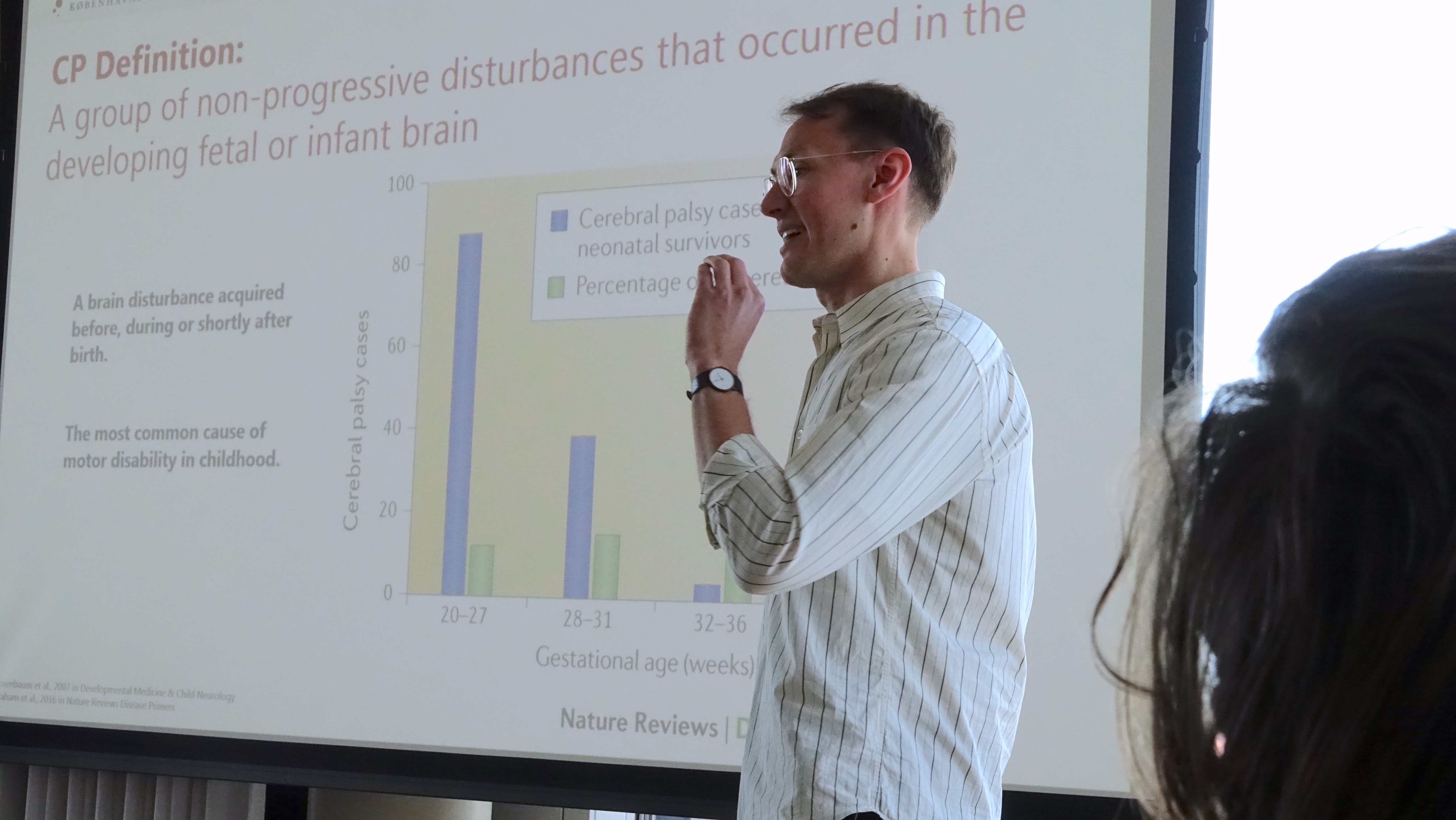New research: Fatigue may be the result of an overworked nervous system
A new Ph.D. project has investigated the reason for increased fatigue in people with Cerebral Palsy (CP). According to the researcher leading the project, fatigue may be a result of a greater strain on the nervous system. This information is important because it can help healthcare professionals to make treatment decisions. The project is supported by the Elsass Foundation.
Everyone experiences fatigue from time to time. For many individuals with CP, the experience of fatigue can be overwhelming to the point that it is significantly limiting for their daily activities. Although fatigue has far-reaching consequences for many people with CP, researchers in the field acknowledge that it is one of the least understood phenomena.
A new research project from the University of Copenhagen has taken a closer look at the reasons for increased fatigue in people with CP. One of the project's main findings is that the nervous system has to work much harder in those individuals with CP, and this may be the cause of increased fatigue.
Important insights
Christian Riis Forman, the researcher behind the Ph.D. project, hopes that the project's findings can help both people with CP and healthcare professionals to better understand fatigue. Daily activities can worsen fatigue because the nervous system has to work hard to complete them. There is no one-size-fits-all solution to this challenge, so it is essential to focus on finding the right solution for each individual.
"When a healthcare professional encounters someone who is experiencing fatigue, the immediate response should not be to explain why but instead to look more closely at the individual," says Forman.
He continues: "It's important to examine the physical, psychological, and cognitive demands the person is facing and help them to structure their everyday life to address the challenges associated with fatigue."
Read More About Fatigue and CP Here
Hunting for a fingerprint
According to Forman, fatigue is a complex and challenging phenomenon. The experience of fatigue is individual and, as a result, challenging to measure. At the beginning of the project, the researchers attempted to find a so-called neural correlate – a kind of fingerprint in the brain - that reflects fatigue.
"Finding a fingerprint would help us understand what fatigue is," explains Forman, who is the lead researcher behind the Ph.D. project.
He continues: "In research it is common to try to relate a specific area of the brain to a specific experience or feeling – in this case, fatigue."
Although this approach has been used with great success in individuals with other forms of neurological diagnoses, researchers from the University of Copenhagen and the Elsass Foundation quickly discovered that it was not as straightforward in people with CP.
Because CP arises from various disruptions in brain development, there is significant variability among individuals with CP. In some people, the disruption is large and easy to detect, while in others, it is small and challenging to identify through traditional brain scans. The combination of variability in disruptions and fatigue as a complex phenomenon led the researchers to abandon the idea of finding a “fingerprint” in the brain as an explanation for fatigue.
"We quickly realized that it was too early to attempt to find the one critical factor that can explain fatigue in people with CP," emphasizes Forman.
Instead, the researchers chose to investigate a more functional explanation for fatigue that was more closely related to the daily lives of people with CP.

Christian Riis Forman defended his Ph.D. in April 2023 at the University of Copenhagen. Photo: Elsass Foundation.
Everyday life requires more
Fatigue typically arises as the result of high levels of strain on the body and nervous system. The researchers hypothesized that the greater effort needed for daily activities in individuals with CP might explain their increased fatigue. In their experiments, they investigated how much energy people with CP expend while walking.
"We found that individuals with CP often choose to walk at a speed that requires far more energy than the speed people without CP choose," the researcher points out. Although the experiments focused on walking, there is good reason to believe that the results are applicable to other daily activities, explains Forman.
He adds, "It made sense to us. The world is rarely accommodating for people with mobility impairments. Typically, individuals with mobility impairments need to increase their energy expenditure to keep up with everyday life."
The increased energy expenditure they observed could not be attributed to specific mobility challenges. Instead, the researchers believe that the increased energy expenditure reflects a strategic way of compensating for their mobility challenges. Although this strategy makes sense in terms of increasing efficiency in everyday life, the researchers thought it might have implications for the development of fatigue.
"This must have some downstream effects. Since CP is a neurological diagnosis, we hypothesized that the nervous system was challenged in maintaining an elevated energy level throughout the day," says Forman.
The researchers also examined how nervous system activity changed as a result of fatigue.
Muscle fatigue and brain activity
It is well established among researchers that nerves send signals to the brain when muscles become tired. However, it is not yet known how the brain compensates for muscle fatigue and whether this compensation occurs to the same extent in people with CP.
"This could be a contributing factor to the development of fatigue," emphasizes Forman.
As part of the project, the researchers also investigated the communication between muscles and the brain before and after inducing muscle fatigue. Using electrodes placed over muscles and on the scalp, the researchers detected changes in electrical voltage, which is the signal the brain and muscles use to communicate with each other.
The researchers' results showed that fatigue affected communication between the muscles and the brain in the same way in people with and without CP. These results suggest that it is not the absence of a compensatory mechanism that is responsible for increased fatigue but rather how frequently one needs to compensate.
"While individuals without CP may need to compensate a few times a day, those with CP may need to compensate much more frequently. This can have consequences for how people navigate daily life and perceive its challenges," concludes Forman.
Want to Learn More?
Papers from the Ph.D. thesis are accessible without charge (in English).

